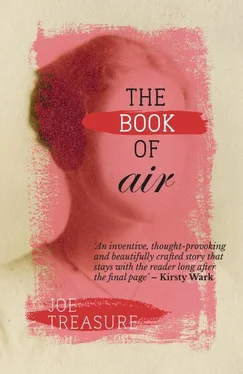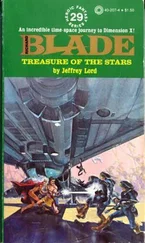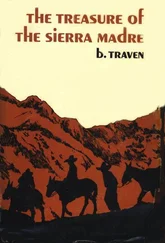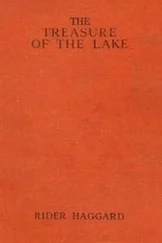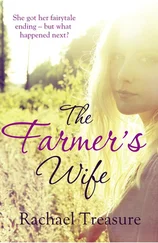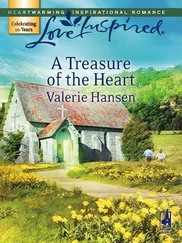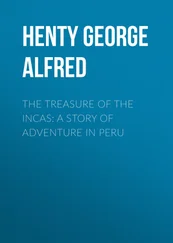And besides, now that I have Dell as a friend, now that Dell knows about the book, now that the book is not my only friend, perhaps I can put it by and maybe not think about it so often and so fiercely. I will try at least.
Is it October yet? There’s no way of knowing. The day’s colour faded long ago from the sky, but it’s warm still, almost sultry. I’m tired, but too restless for bed. I sit on the front steps of the house and rest against a pillar. I push my hands against the stone and its texture speaks like Braille. I was here before you were born, the house says, and I’ll be here after you’re dead. And when I’m old I’ll shelter your offspring. Your descendants too will be nurtured here, will sit where you sit and see the cottages standing among trees across the empty road, the church tower breaking the skyline to the east where the woodland thickens, a drift of haze softening the edges of the moon.
I’m distracted by human voices. Below in the orchard Aleksy has said something to make Deirdre laugh. So that’s where they disappeared to after our spin in the Merc. I see them now. Their outlines shift and mingle in the shadows and their soft laughter joins the other noises – the bird cries and fox barks, the scurrying of badgers, the wingbeats of roosting pheasants.
How close you seem to me right now, Caro, Caroline, though forever out of reach.
The Merc is where we left it, down there tilting into the ditch among the weeds. That’s the last of our old life. Somewhere up in the house the monkey is bickering with Django’s clarinet, bubbles of noise floating from the high windows. There are footsteps behind me in the hallway and a rushing sound like wind blowing through the grass, but there is no wind.
Abigail speaks to me. ‘I brought you a jumper, look.’
‘I’m not cold.’
‘But you might be later.’
I turn and look up at her and see there’s a duvet over her shoulder, dragging on the flagstones.
‘Maud’s gone to bed. I don’t want to sleep in the house. Not tonight.’
She puts her hand out and helps me up. Then without letting go she draws me down the steps and towards the High Wood.
‘It’s Django’s stew,’ I say.
‘Yes, it’s Django’s stew, so we don’t have to think of another reason.’
‘Did you know he’d spiked the food?’
‘Spiked – is that what you call it? Because of those sharp-capped mushrooms? I should have known not to eat them. I was so eager for everything to be all right.’
‘What are we going to do about Django?’
‘He can’t hurt us if we don’t let him.’
‘He could have poisoned us.’
‘I’ll keep him out of the kitchen.’
‘He burnt my books.’
‘So that’s one thing he can never do to you again.’
‘I’m not sure that makes sense.’
‘Maybe it doesn’t. Ask me in the morning.’ She looks at me closely, her eyes fixed on mine, and starts to smile and looks away, because looking and smiling aren’t allowed at the same time.
I let her lead me in silence across the lawn and in among the trees until the house is obscured. Her headscarf snags on a twig and for a moment she’s tangled. I help her pull her hair free. Then she unhooks the scarf from the branch and pockets it. Where the trees are most ancient and the ground opens up, she throws the duvet down on a bank of leaves and we sit watching bright slivers of sky between trunks of beech and elder.
‘I want to tell you about Caroline.’
‘Tell me then.’
‘We were married for five years and we were going to have a child, a little girl. She was great, Caroline was, really great. She was always full of ideas. She lived in her head. It drove me up the wall sometimes. She’d lose something and not notice for days. It never bothered her. She was much cleverer than me, except about practical things. She didn’t tell me much about her childhood, only that she was lonely and read for company. I should have asked her more. But asking questions was more her thing than mine. She was an anthropologist. Do you know what that is?’
‘No.’
‘It doesn’t matter. I don’t either, really. She wrote things – books and articles. She wrote all the time, when she wasn’t teaching and going to meetings or doing what she called fieldwork. But there was a book she was writing for herself. Nothing to do with her job, just an idea she had. It started with Jane Eyre because she loved Jane Eyre . She had various copies of it, but her favourite came from her godmother and was about eighty years old. Do you know Jane Eyre ?’
‘No.’
‘She wanted to write a kind of history of the way Jane Eyre ’s been imitated and re-written and generally ripped off. I teased her about it, how far up itself it was – a book about a book and all the other books it’s spawned. She didn’t mind. She enjoyed being teased. You don’t know what I’m talking about do you? Don’t listen to me. I don’t know why I’m talking so much.’
‘Don’t stop. It’s interesting. I like it when you talk.’
‘There were books she liked a lot. One that told the story of Rochester’s mad wife, all the things Charlotte Bronte doesn’t tell us and Jane Eyre doesn’t know – about her being a Jamaican and how she’s done in by men. I forget the name of it. And there were books that annoyed her, and books that made her laugh. She loved spotting Charlotte’s children, as she called them. Stories about Victorian husbands driving their wives mad and locking them in lunatic asylums. Stories about houses haunted by secrets, and you’d know it wouldn’t be over until someone had set fire to the house. I said once it was the houses I felt bad for and she pretended to be shocked. Of course I never actually read them, but she’d be in bed with a book and start giggling or get excited and then she’d tell me. I asked her once why she didn’t write a book of her own – a novel, I mean. And she said she didn’t have the talent for making things up. She was better at seeing patterns in other people’s stories. But she did once have this idea for a children’s story.’
‘Tell me.’
‘I’m not sure I can remember it all.’
‘Tell me what you remember.’
‘All right. This girl lives in an orphanage. One day she finds a book hidden in the fireplace where they’re too mean to light a fire. It’s a beautiful book and she loves it like a friend, like a toy bear or something, hugging it at night. She starts having these strange dreams. Every morning she finds the story of her dream has printed itself in the book in place of what was there before. Meanwhile, in some other country, a wealthy man finds parts of his life disappearing – objects missing from his house, then pieces of his own history. Friends become unreachable and unknown as though they’d never existed. When his son doesn’t come down to breakfast, he sends his daughter to wake him. Go and fetch your brother from his room, he says, and she reacts as if he’s gone mad. What brother? What room? His piano disappears. He visits a friend, a violinist. He sits to play the friend’s piano and he can’t play a note. It’s as though he’s never touched a piano in his life. I can’t remember how it ends. Maybe that was going to be the end. It doesn’t sound like much of story does it.’
‘It’s sad.’
‘Yes, but Caroline wasn’t sad when she told me about it. She was excited. That’s the way she was.’
‘There’s something I must tell you, Jason.’
‘You can tell me anything.’
‘But this is a secret. I mean I’ve kept it a secret and I shouldn’t have, and now I’m afraid you’ll be angry that I didn’t tell you before.’
‘Why didn’t you?’
Читать дальше
